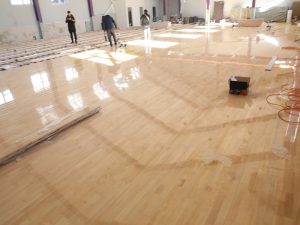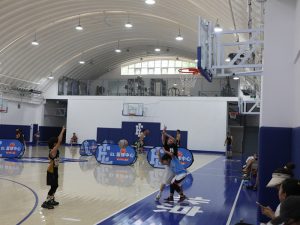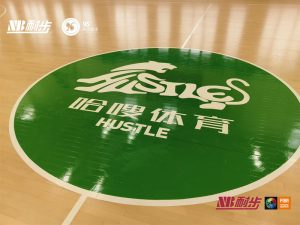When it comes to professional basketball, not just any court surface will do. FIBA, the international governing body for basketball, has strict standards for court flooring—and for good reason. The right surface impacts everything from player safety to game performance.
Why FIBA-Approved Flooring Matters
FIBA-certified courts aren’t just about looking professional—they’re built to perform. The federation requires flooring that meets specific criteria for shock absorption, ball bounce, and traction. This ensures:
- Consistent play across international tournaments
- Reduced injury risk from slips or excessive impact
- Fair gameplay with predictable ball behavior
The Gold Standard: Hardwood Maple

Most top-tier FIBA competitions use hardwood maple flooring, and there’s a reason it’s the go-to choice:
- Durability – Withstands intense gameplay without warping.
- Optimal Shock Absorption – Protects players’ joints during jumps and landings.
- True Ball Bounce – Unlike synthetic floors, hardwood provides reliable rebound.
That said, not every facility can install solid maple. For multi-use venues or budget-conscious projects, high-quality synthetic alternatives (like polyurethane or modular tiles) can also meet FIBA standards if properly tested.
Key Features of FIBA-Compliant Flooring
Whether wood or synthetic, FIBA-approved floors must have:
- Shock absorption (minimum 53% force reduction)
- Uniform surface friction (not too sticky or slippery)
- Consistent ball rebound (90-110% of drop height)
- Durable finish resistant to scuffing and wear
Maintenance Tips for Long-Lasting Performance
Even the best flooring needs care. For FIBA-level courts:
- Clean regularly with a microfiber mop (no harsh chemicals)
- Refinish every 5-8 years depending on usage
- Monitor humidity (ideal: 30-50% to prevent warping)
Final Thoughts
If you’re building a court for serious competition, investing in FIBA-compliant flooring isn’t just about meeting regulations—it’s about creating the best possible playing experience. While hardwood maple remains the premium choice, modern synthetic options can also deliver professional-grade performance when properly engineered.




